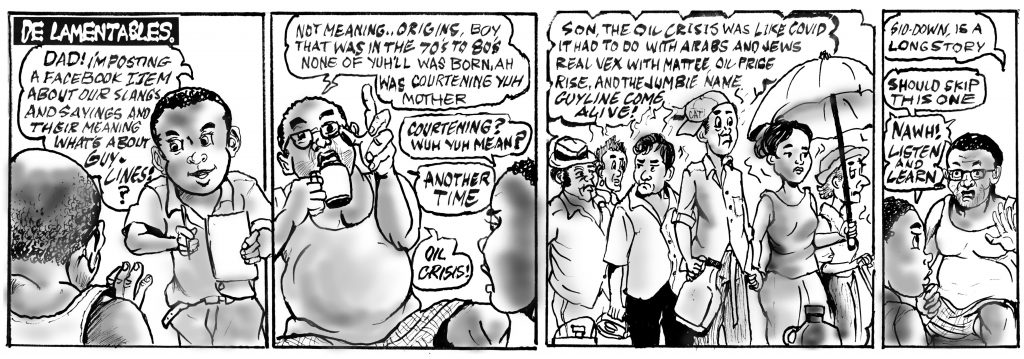THE world and the facts and details that led to the ‘Oil Crisis’ are not a simple or straight line of events and characters, it was a consequence of power struggles that existed before we became a nation, naive and pedestrian in so many areas were we on both sides of the political contesting teams. We must look to the area of the African continent that colonisation deemed ‘The Middle East’ is where the contentions of determination existed that led to the post-WWII restlessness between old enemies, principally the claim to territory occupied by Muslim Arabs by European Jews arguing biblical rights. For an introduction to the modern origin of this conflict see the biography of Arthur James Balfour 1906-1930, or the “Balfour Declaration” that condensed with the post-WWII migration of European Jews 1948-49 to what would become Israel was indeed a contributor to this continuous conflict zone. The Organization of Petroleum Exporting Countries (OPEC) was founded in Baghdad in September 1960 by Venezuela, Saudi Arabia, Iran and Kuwait. The Israeli war with Egypt in 1967 ushered in the first oil embargo; this however lasted for only months and was ineffective. But oil had become a political weapon. The second war commenced when Egypt and Syria attacked the Bar-Lev line and the Golan Heights respectively in October 1973 and immediately following that, Arab oil producers cut production by five percent. This was followed by continued monthly production cuts. By December production was cut by 25 percent; this was in retaliation to U.S. arms support for Israel. The world would pay as a result of the intensification of the economic stage of this conflict, as this contributed to a global recession, and much worse for nations that were not oil producers. This was the era of the ‘Cold War’ and the anti-colonialism thrust resulted in the formation of very serious para-military groups throughout Europe and the Middle East. Not all were centred on the same cause, but there were support relationships in specific cases. The combination into a special unit led by Venezuelan Ilich Ramirez Sanchez aka Carlos the Jackal led a commando attack on the OPEC headquarters in Vienna in December 1975 to execute the oil ministers accused of not wanting to raise oil prices, specifically the Saudi Arabian Minister Sheik Ahmed Zaki Yamani’; this was attributed to Saddam Hussein–see David Yallop’s ‘TO THE ENDS OF THE EARTH.’
This was the world situation that the young CARICOM nations would find themselves fitted into — a helpless economic vice; to once more quote ‘THE NEW YORK TIMES’ article by David Binder Feb. 18, 1974, titled Oil disrupts Caribbean Development Plans Crisis “Georgetown Guyana. The international oil crisis struck hard at the Caribbean region’s newborn economic community, disrupting development plans, stopping currency convertibility and causing severe shortages of basic consumer goods. Four small states — Barbados, Jamaica, Trinidad and Tobago and Guyana formed the Caribbean community last August on a crest of optimism. They are scheduled to be joined by at least seven other tiny states next May. But the current oil shortage and the accompanying spiral of fuel prices have damaged even Trinidad and Tobago, the twin-island state that produces and refines her own oil and gas at $ 1,000, the fourth-highest per capita income in the western hemisphere. Nowhere are the effects of the oil crisis more evident than in Guyana, a sparsely populated nation the size of Idaho (population 713,000), on the north-eastern coast of South America. “It has eaten drastically into our foreign currency reserves,” said Winston King, the 44-year-old Minister of Economic Development in an interview. The age of manufacturing in Guyana would largely collapse, several shirt companies and BATA Shoe Company disappeared; cinemas hardly brought new films, and book stores were diminished and replaced by a new wave of second-hand bookstalls. Street crime did escalate, but without the weaponry that our other Caribbean brethren boasted. Shortages and the disappearance of customary goods became visible; this was exploited dishonestly by politicians, but it did get worse. Spares for ageing vehicles were rare, and there was hardly a car that didn’t have sharp attachments and projections that didn’t tear away at the stockings and skirts of working women who were in those overcrowded vehicles, since most men used bicycles. The worse of it was when GWI could not operate and water became a scrambled commodity, wherein the few premises that 19ct vats still existed, owner’s orderly allowed neighbours here or there to draw water after rainfall, the health of these vats waters were very questionable. Most people had Kerosene stoves, but both Kero and gas required long lines to purchase these treasured social vitals along with food items. Worse were the blackouts, which occurred in the middle of a cinema show, or repeatedly at times every night, this was the dismal era that gave birth to flour-smuggling and suitcase traders, and cross-border trading for consumer items with Venezuela for our rice, sugar and liquor.
Guyanese blamed their government, who never itemised the global situation to its citizens. But across the western hemisphere of nations citizens also suffered; in the United States price controls were in place, motorists faced long lines for gasoline. The Netherlands imposed prison sentences for persons who exceeded their rations of electricity. The UK, Germany, Italy, Switzerland and Norway banned flying, driving, and boating on Sundays. The embargo was lifted, but the rise in oil prices continued to affect the world throughout the ’70s. The big countries adjusted, having the technology to acquire support for energy sources like coal. But countries such as Guyana had to endure regardless and… “we had to bear we chafe.”




.png)










